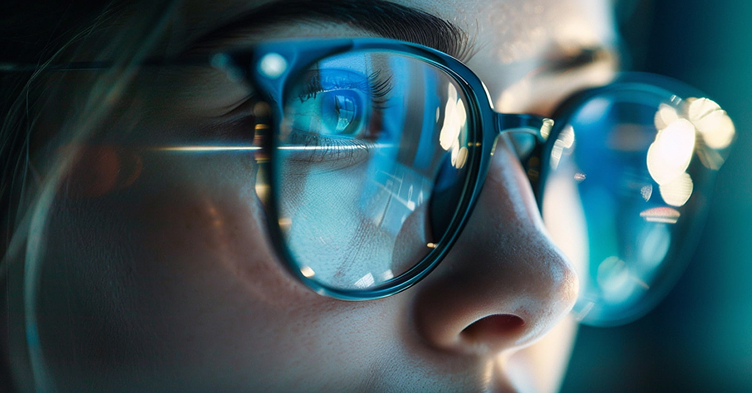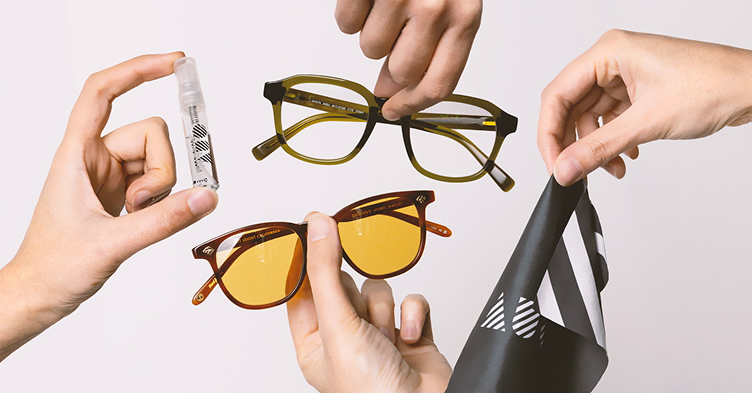Single vision
Offering clarity for one type of vision issue. Ideal for treating nearsightedness, farsightedness, presbyopia, and astigmatism.
Read moreFree Shipping & Returns • No code required
Browse our articles to discover the top styles to complement with a blue light coating.

Discover the benefits of adding blue light-blocking lenses to your eyeglass frames.
Read more
Suffering from smudgy frames? We asked our resident optician for his best tips on how to properly clean your glasses.
Read more